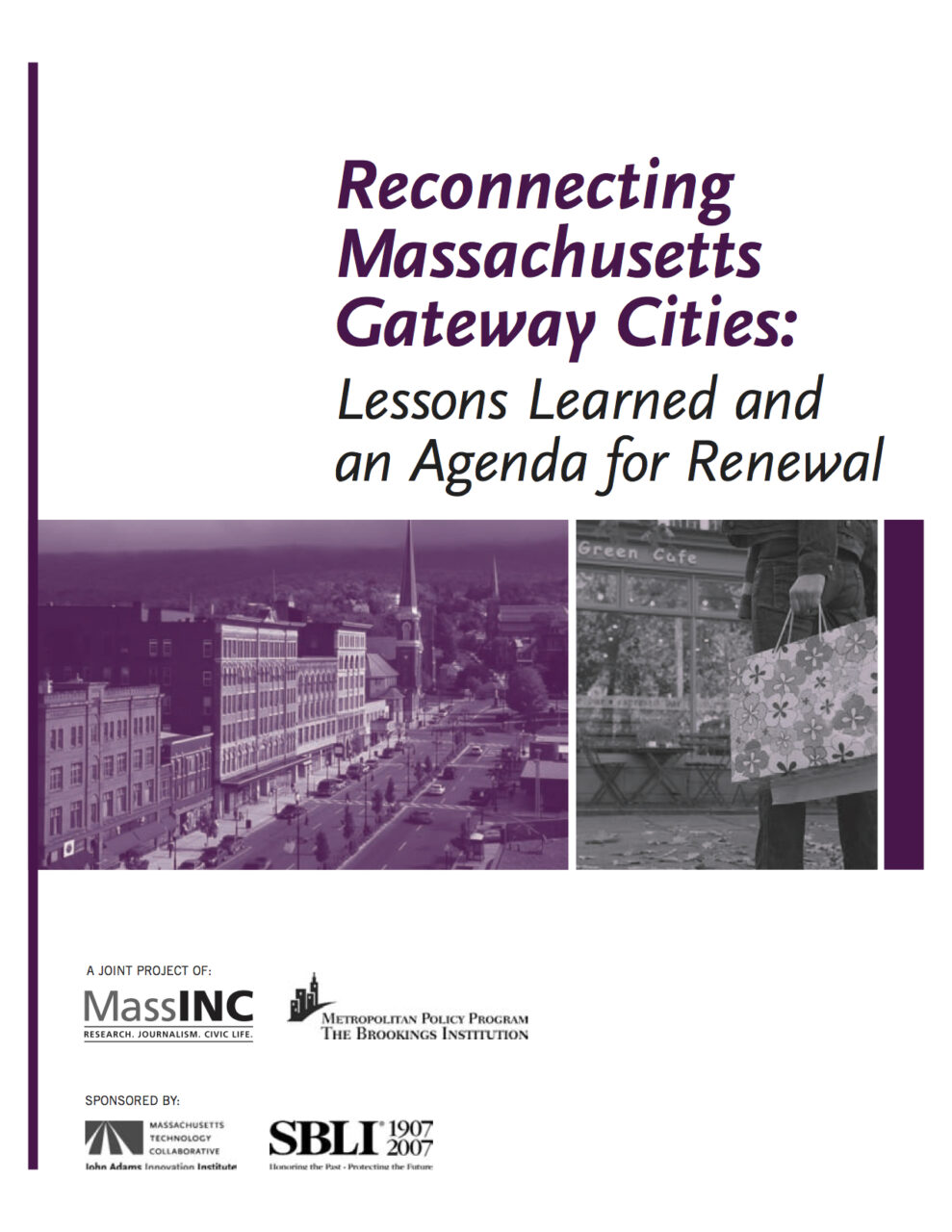Massachusetts has enjoyed one of the most successful economic transitions to a knowledge-based economy anywhere in the world over the last two decades. Statewide trends describe a solid economic turnaround, built on strong institutions, soaring educational attainment and the emergence of knowledge-based industries with high-paying jobs. Yet these broader trends obscure stark geographical variations within the state. On the one hand, Greater Boston has evolved into an even more dominant focal point of the Massachusetts economy than it was 30 years ago. On the other hand, only a few Massachusetts cities and regions are fully participating in the state’s economic reinvention, and the state’s traditional mill communities – the Gateway Cities –may actually be falling farther behind.
This report aims to lay out a sober assessment of the Gateway Cities’ current status. Since 1970, the 11 Gateway Cities studied in this report lost more than 11,000 jobs or 3 percent of their job base, while Greater Boston 467,000 jobs to grow by 51 percent. Gateway Cities are home to 30 percent of all Massachusetts residents living below the poverty line, even though they account for only 15 percent of the state’s population. Educational attainment levels remain low with just 16.5 percent of Gateway City residents possessing a four-year college degree.
But Reconnecting Massachusetts Gateway Cities also describes a vision for economic value and an agenda for renewal to take advantage of the enormous physical, human, and economic latent in these historic communities. Gateway Cities offer potential important assets to the state, including middle-class housing, infrastructure to pursue smart growth, and a growing, energetic, and diverse workforce. The report concludes that Massachusetts needs to catalyze a major new state-local partnership to reconnect these cities and overcome the problems that hold them back. The report draws on lessons learned in urban regions across the United States and recommends three overarching strategies for better integrating the former mill cities into the state’s knowledge economy:
- Fix the basics. Massachusetts should assure a more consistent flow of local aid dollars to the Gateway Cities in exchange for increased accountability, transparency, and efficiency in local expenditures and service provision. In addition, the state, local, and private sectors should collaborate to turn “deal breakers” in the real-estate development regulatory process into “deal makers.”
- Build the middle-class workforce of tomorrow. The Commonwealth should step up education and training in the Gateway Cities by redoubling efforts at urban school reform and boosting the education and language skills of the adult workforce. At the same time, multiple sectors need to focus on bolstering family assets to generate community wealth.
- Create new economic connections for the 21st century. The state and the municipalities should harness Gateway City colleges to spark local economic development. New connections – whether the physical links of rail, the electronic links of the internet, or the intergovernmental links of cross-boundary collaboration – should be developed to foster improved economic competitiveness among regions.
Reconnecting Massachusetts Gateway Cities is a joint project with the Metropolitan Policy Program of the Brookings Institution.
